Opinion
OPINION: On Monday November 26 2018 will the Mayor and City Council vote to give themselves 14-18% pay raise?

The opinions expressed in this article are solely those of the writer and should not be interpreted as reflecting the editorial policy of Todayville, Inc.
Will the Mayor and our 8 city Councillors have the discipline to stand by their principles and convictions of fiscal conservatism? I hope so.
We have all suffered and we feel their pain. We all know of someone who has lost a job, shown up at their workplace to find it padlocked, had hours cut, pay roll backed, gone bankrupt, had medical expenses go skyrocketing, seniors boarding up rooms to save on extreme heating costs, had their vehicles repossessed, homes foreclosed, forced to go to food banks, forced to take on a second or third job to feed children, forced into early retirement, or just lost their life savings.
City council has talked about declining resources and rising costs for increasing taxes, franchise fees, bus fares, recreational fees, and other services even if you lost your job, seen hours cut, your rent increased, and had your car repossessed.
The Mayor and Councillors have all seen or heard these tales and have used them to cut spending and services for the good people of Red Deer.
On Monday November 26, 2018 they will be given the chance to prove their mettle, show their disciplined convictions to fiscal conservatism and not vote them selves a raise to cover the end of a tax subsidy, only they and not the average citizen enjoyed for years.
Unlike many of us who lose jobs, income, or bonuses suddenly and unexpectedly, they saw it coming.
Will the Mayor and our 8 city councillors suffer a perceived salary cut? Every business owner, tradesman and even the Alberta Government employees saw roll backs, cuts and decreased profits. Didn’t former Conservative Premier Ralph Klein roll back all government employees pay by 5% and kept frozen for years afterwards?
I say perceived because they are not actually seeing a salary cut but an equalization of taxes, compared to non-politicians. They had the benefit of a 1/3 tax free earnings subsidy which ceases to exist on January 1 2019.
The subsidy was granted to offset personal expenses peculiar to the role of being a politician. Politicians were also given expense accounts to cover the costs of these same personal expenses so the benefit was rather redundant. Some would call this unintentional double-dipping.
Being human they became accustomed to having the extra funds, forgetting the reason for them.
Now they are like the rest of society and facing a possible net pay decrease. So the question is; “If they do not vote themselves a raise, who will stay and who will go?”
October 2017 there were 2 candidates for mayor and 29 candidates for city council, how many of them ran for the pay cheque and how many would have withdrawn their nomination papers if they knew that the 1/3 exemption would end in 2019?
I do not believe any one would have withdrawn from the campaign and I do not think our mayor or any of our councillors will resign due to this hardship. Do you?
On November 26, 2018 will the Mayor and Councillors have the discipline and convictions to stand by their fiscal conservative oratories or will they just stick their hands back in the public trough for more money to sustain their rather nice life style? I hope not. Just saying.
National
Canada’s Governor General slammed for hosting partisan event promoting Trudeau’s ‘hate speech’ bill

From LifeSiteNews
Mary Simon, Canada’s supposed non-partisan head of state, appeared to be supporting a Liberal government bill that will further regulate the internet.
Governor General Mary Simon, who serves as Canada’s official non-partisan head of state and representative of King Charles III, has taken heat for hosting a conference supporting a new federal government bill that could lead to large fines or jail time for vaguely defined online “hate speech” infractions.
On April 11, Simon hosted an event titled “The Governor General’s Symposium: Building a Safe and Respectful Digital World” at her Rideau Hall residence, with the goal to “bring together individuals who experience online violence and experts from across the country to share their experiences, explore solutions, and create allyship and networks of resilience.”
The guest list for those invited included those supportive of Liberal Minster Attorney General Arif Virani’s Bill C-63, or Online Harms Act. Some of the invited guests included former Global News reporter Rachel Gilmore, LGBTQ activist Fae Johnstone, Chief Public Health Officer Dr. Theresa Tam, and Ottawa school trustee Nili Kaplan-Myrth. No members of the Conservative Party or independent journalists were invited.
After news spread of the event, which Simon herself posted about on X, many took to social media to voice concerns over Simon hosting the event.
“Can you imagine the Queen having a seminar at Buckingham Palace to talk about a bill before the House of Commons in England? That would be outrageous. That’s what @GGCanada Mary Simon just did,” said political commentator Tom Korski on a CBC radio show.
Another X user @IMHeatherAmI wrote, “Trudeau has corrupted everything.GG Mary Simon is abusing her power by “promoting contentious Liberal bills that are trying to be passed in Parliament.”
Rideau Hall gave no comment that Canada’s supposed non-partisan head of state appeared to be supporting a Liberal government bill that will further regulate the internet.
“The Governor General is non-partisan and apolitical,” Rideau Hall said in a statement.
In comments sent to the media about apparent conflicts of interest, a spokesperson for Simon said that she will keep advocating for “digital respect.”
Conservative Party spokesman Sebastian Skamski observed that Simon should be “ashamed” for “politicizing and exploiting” the office of Governor General, which is supposed to be completely non-partisan.
The Online Harms Act was introduced in the House of Commons on February 26 by Virani and was immediately blasted by constitutional experts as troublesome.
Bill C-63 will modify existing laws, amending the Criminal Code as well as the Canadian Human Rights Act, in what the Liberals claim will target certain cases of internet content removal, notably those involving child sexual abuse and pornography.
However, the bill also seeks to police “hate” speech online with broad definitions, severe penalties, and dubious tactics.
Details of the new legislation to regulate the internet show the bill could lead to more people jailed for life for “hate crimes” or fined $50,000 and jailed for posts that the government defines as “hate speech” based on gender, race, or other categories.
The bill also calls for the creation of a digital safety commission, a digital safety ombudsperson, and a digital safety office.
The Justice Centre for Constitutional Freedoms (JCCF) has said Bill C-63 is “the most serious threat to free expression in Canada in generations. This terrible federal legislation, Bill C -63, would empower the Canadian Human Rights Commission to prosecute Canadians over non-criminal hate speech.”
JCCF president John Carpay recently hand-delivered a petition with 55,000-plus signatures to Canada’s Minister of Justice and all MPs.
Agriculture
Bill C-282, now in the Senate, risks holding back other economic sectors and further burdening consumers

From the Frontier Centre for Public Policy
Bill C-282 currently sits in the Canadian Senate and stands on the precipice of becoming law in a matter of weeks. Essentially, this bill seeks to bestow immunity upon supply management from any potential future trade negotiations without offering increased market access to potential trade partners.
In simpler terms, it risks holding all other economic sectors hostage solely to safeguard the interests of a small, privileged group of farmers. This is far from an optimal scenario, and the implications of this bill spell bad news for Canadians.
Supply management, which governs poultry, egg, and dairy production in Canada, has traditionally enabled us to fulfill our domestic needs. Under this system, farmers are allocated government-sanctioned quotas to produce food for the nation. At the same time, high tariffs are imposed on imports of items such as chicken, butter, yogurt, cheese, milk, and eggs. This model has been in place for over five decades, ostensibly to shield family farms from economic volatility.
However, despite the implementation of supply management, Canada has witnessed a comparable decline in the number of farms as the United States, where a national supply management scheme does not exist. Supply management has failed to preserve much of anything beyond enriching select agricultural sectors.
For instance, dairy farmers now possess quotas valued at over $25 billion while concurrently burdening dairy processors with the highest-priced industrial milk in the Western world. Recent data indicates a significant surge in prices at the grocery store, with yogurt prices alone soaring by over 30 percent since December 2023. This escalation is increasingly straining the budgets of many consumers.
It’s evident to those knowledgeable about the situation that the emergence of Bill C-282 should come as no surprise. Proponents of supply management exert considerable influence over politicians across party lines, compelling them to support this bill to safeguard the interests of less than one percent of our economy, much to the ignorance of most Canadians. In the last federal budget, the dairy industry alone received over $300 million in research funds, funds that arguably exceed their actual needs.
While Canada’s agricultural sector accounts for approximately seven percent of our GDP, supply-managed industries represent only a small fraction of that figure. Supply-managed farms represent about five percent of all farms in Canada. Forging trade agreements with key partners such as India, China, and the United Kingdom is imperative not only for sectors like automotive, pharmaceuticals, and biotechnology but for the vast majority of farms in livestock and grains to thrive and contribute to global welfare and prosperity. It is essential to recognize that Canada has much more to offer than merely self-sufficiency in food production.
Over time, the marketing boards overseeing quotas for farmers have amassed significant power and have proven themselves politically aggressive. They vehemently oppose any challenges to the existing system, targeting politicians, academics, and groups advocating for reform or abolition. Despite occasional resistance from MPs and Senators, no major political party has dared to question the disproportionate protection afforded to one sector over others. Strengthening our supply-managed sectors necessitates embracing competition, which can only serve to enhance their resilience and competitiveness.
A recent example of the consequences of protectionism is the United Kingdom’s decision to walk away from trade negotiations with Canada due to disagreements over access to our dairy market. Not only do many Canadians appreciate the quality of British cheese, but increased competition in the dairy section would also help drive prices down, a welcome relief given current economic challenges.
In the past decade, Canada has ratified trade agreements such as CUSMA, CETA, and CPTPP, all of which entailed breaches in our supply management regime. Despite initial concerns from farmers, particularly regarding the impact on poultry, eggs, and dairy, these sectors have fared well. A dairy farm in Ontario recently sold for a staggering $21.5 million in Oxford County. Claims of losses resulting from increased market access are often unfounded, as farmer boards simply adjust quotas when producers exit the industry.
In essence, Bill C-282 represents a misguided initiative driven by farmer boards capitalizing on the ignorance of urban residents and politicians regarding rural realities. Embracing further protectionism will not only harm consumers yearning for more competition at the grocery store but also impede the growth opportunities of various agricultural sectors striving to compete globally and stifle the expansion prospects of non-agricultural sectors seeking increased market access.
Dr. Sylvain Charlebois is senior director of the agri-food analytics lab and a professor in food distribution and policy at Dalhousie University.
-
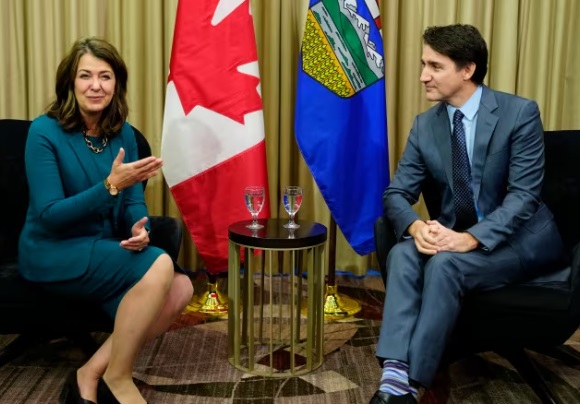
 Alberta2 days ago
Alberta2 days agoFree Alberta Strategy backing Smith’s Provincial Priorities Act
-
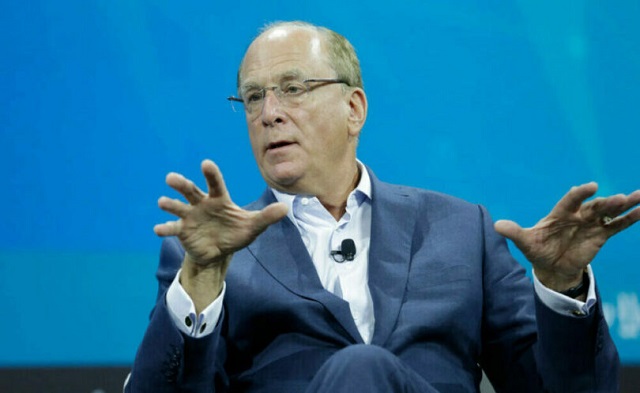
 Business2 days ago
Business2 days agoUS firms like BlackRock are dropping their climate obsession while Europe ramps theirs up
-

 Automotive2 days ago
Automotive2 days agoBiden’s Kill Switch: The Growing Threat of Government Control of Your Car
-
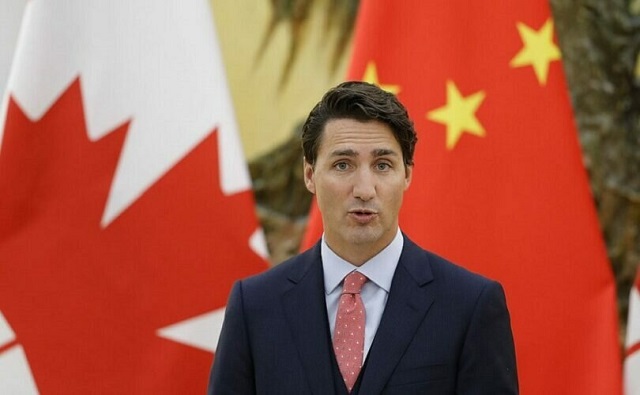
 espionage1 day ago
espionage1 day agoTrudeau’s office was warned that Chinese agents posed ‘existential threat’ to Canada: secret memo
-
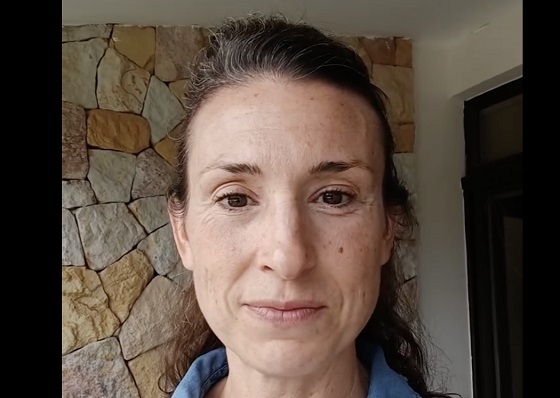
 COVID-191 day ago
COVID-191 day agoPro-freedom Canadian nurse gets two years probation for protesting COVID restrictions
-
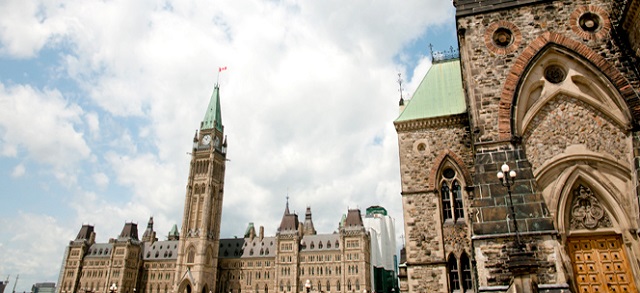
 Economy1 day ago
Economy1 day agoMassive deficits send debt interest charges soaring
-

 International20 hours ago
International20 hours agoBrussels NatCon conference will continue freely after court overturns police barricade
-

 Business19 hours ago
Business19 hours agoBusiness investment key to addressing Canada’s productivity crisis






